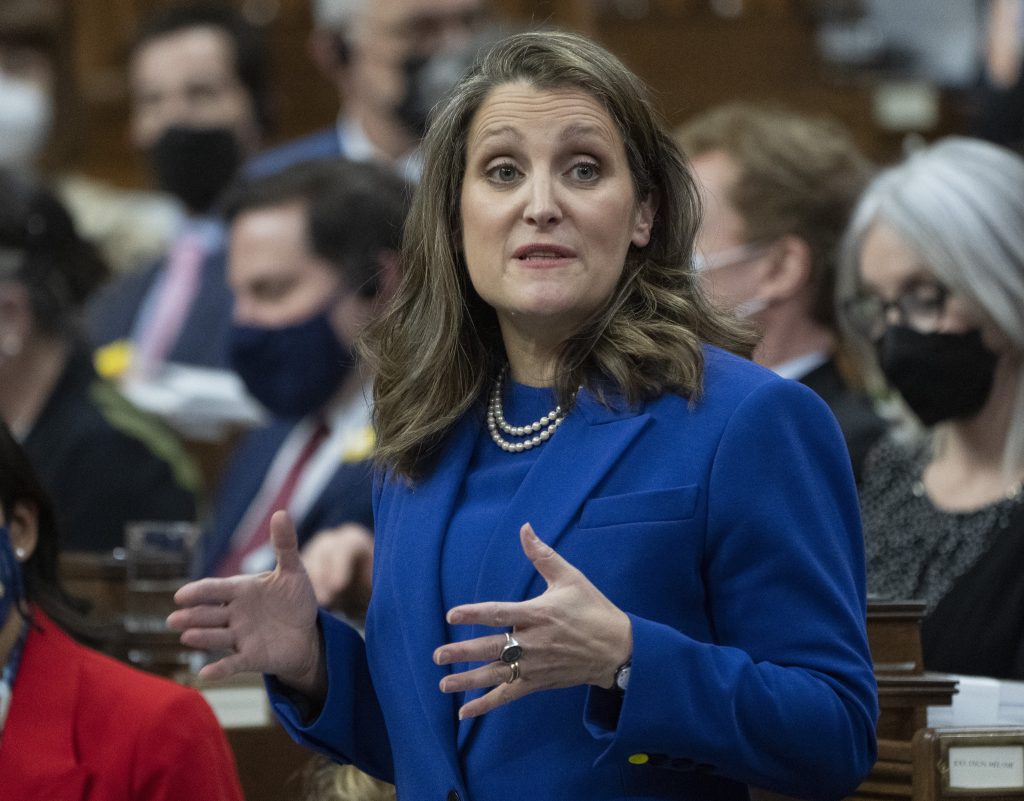Canada News
Liberal government’s budget still lacking in gender-based analysis: advocates

OTTAWA — Despite the Liberal government long styling itself as feminist, advocates say the recent federal budget lacked a sufficient gender-based analysis of its measures.
The government passed a bill in 2018 to require it to promote gender equality in the budget and consider gender and diversity in resource allocation decisions.
“It’s really disappointing that at this point, it’s still lagging so far behind on that front,” said Diana Sarosi, director of policy and campaigns at Oxfam Canada.
Action Canada for Sexual Health and Rights said in a statement Friday that the budget falls short in demonstrating a commitment to gender equality and women’s rights or to sexual and reproductive rights.
Shalini Konanur, executive director at South Asian Legal Clinic of Ontario, said the budget’s promises around employment equity are not enough to improve the poor labour market outcomes for racialized women.
A feminist budget would have included a number of different actions, including employment insurance reform, Konanur said.
“We know from data that women and people from racialized communities tend to get less from employment insurance, tend to be rejected more often or don’t qualify, because they don’t meet the hours,” she said.
Gender-based analysis involves examining how a policy or process could affect men and women in different ways, while taking other factors into account.
While the Liberal government has improved at the analysis since 2018, the way it’s applied could go further, Sarosi said.
“It sort of lacks the intersectionality of all of it. It’s still a very binary kind of analysis,” she said.
Konanur echoed this, noting that there is little in it that discusses anti-racism and how it touches different systems and programs.
“Systemic racism and the way it structurally flows, particularly through federal law and policy and programs, has not been addressed in any way in this budget that would meaningfully get back to the lives of racialized communities,” she said.
The majority of the budget’s references to racism are in its promise of $85 million over four years to create an anti-racism strategy and national action plan on combating hate.
The fund would support community projects to provide access to resources for Black and racialized Canadians and religious minorities that support their “full participation in the Canadian economy.”
Sarosi also said the budget was vague about how some initiatives would be implemented and would involve equity-seeking groups, such as the federal LGBTQ action plan.
Prime Minister Justin Trudeau told each of his cabinet ministers in their latest mandate letters released December 2021 that he expects them to apply what’s known as gender-based analysis plus — the particular process used by Ottawa — to the decisions they make.
Sarosi said the government’s approach does not really follow what a gender-based analysis is supposed to be.
The process should start with taking stock of what inequalities exist by gender or other category, and how they will be addressed or at least mitigated, she said.
The government’s statement and impacts report on gender and diversity said 44 per cent of the budget’s measures would benefit both men and women, 42 per cent would benefit men, while 14 per cent would benefit women.
“I really feel with this budget, they knew what they were going to do, then they did their analysis, they noticed that it’s an unequal budget and still went ahead with it,” Sarosi said.
Action Canada said a commitment to a feminist approach is not a “one-off, a nice-to-have, or something that can be abandoned when crisis hits.
“It is precisely in these moments that a feminist approach is needed most,” it said.
Prior to the budget, the government talked about the COVID-19 recovery being a feminist recovery or a recovery for the most vulnerable communities, including racialized communities, said Konanur.
“But nothing in the budget suggested that that’s what it was,” she said.
The office of Finance Minister Chrystia Freeland did not immediately respond to a request for comment.
This report by The Canadian Press was first published April 11, 2022.
———
This story was produced with the financial assistance of the Meta and Canadian Press News Fellowship.
Erika Ibrahim, The Canadian Press





















